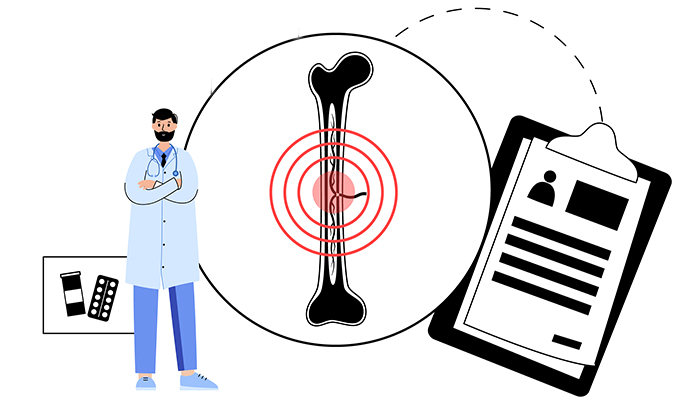Caring Connections
Helpful tips for family caregivers
August/September 2022
If you are caring for a loved one with dementia and also have teenagers, you may be feeling caught in a painful middle. Teens often find dementia embarrassing, even in a beloved grandparent. Check out our tips for navigating the needs of both so they each retain dignity and respect. In our middle article we continue our series on finding a new doctor. This one concentrates on the face-to-face meeting and cogent questions you can ask. Last, we look at noncancer screening tests. “A stitch in time saves nine,” as the old saying goes. Wise words! Check out our list of early detection exams that Medicare pays for.
When grandpa has dementia: Teens and tweens
 For a teen, a relative’s dementia can turn a close relationship into one that’s now awkward, confusing, and embarrassing. And creates feelings of guilt.
For a teen, a relative’s dementia can turn a close relationship into one that’s now awkward, confusing, and embarrassing. And creates feelings of guilt.
Teens and tweens benefit from learning the basics of grandma or grandpa’s condition, such as “There are diseases of the brain that change memory and thinking. We should expect that [grandparent] will have repetitive questions, emotional outbursts, and may even forget our names.” Reassure your teen that these behaviors are a result of the disease. They are not intentional. Also let your teen know that dementia is not contagious.
Support the relationship with activities focused on what your loved one can still do. Explain to your teen that memories of the distant past are the strongest. This is a great opportunity to learn about family history. Engaging the present also works well, especially activities using all the senses (sight, taste, smell, touch, and hearing). Calm activities are more appropriate than fast-paced stimulation. Steer clear of games involving strategy.
- Music is almost always a hit. Try putting on music from your relative’s teen years. Consider dancing. (Remember the twist?)
- Try a walk in nature. Bring attention to the sights, sounds, and smells. Take time to pause and appreciate each sense. (In Japan it’s called “forest bathing.”)
- Visit with animals. Go to the dog park and watch the antics. Or have your teen bring over a favorite pet. Focusing on the animal together can alleviate awkward silences.
- Bring lotion and nail polish for a manicure. Your teen might really enjoy giving grandma a mani-pedi. Grandpa might like a hand massage.
- Watch old movies together. Is your teen a film aficionado? Perhaps you know some favorite classics from your loved one’s youth they could watch.
- Interview your relative. Consider making a scrapbook or memoir so your relative can pass along family stories. Plus, it’s a great gift to the family.
Share emotions. Acknowledge how sad you are to see your loved one slipping away. Also, that you are sometimes angry or frustrated by things they do. Describe what helps you cope with your feelings. Let your teen know they can be frank with you, including if they are embarrassed or uncomfortable and don’t want to visit. Let them have space if they need it. No judgments. Pushing them could backfire, and your loved one will feel it.
Return to topThe doctor interview
 After you have scoured the Internet to help your relative find a potential new doctor—someone on their plan and with no obvious red flags—it’s time to get more specific. The doctor’s website may provide some descriptive information, but most likely, you’ll want a conversation.
After you have scoured the Internet to help your relative find a potential new doctor—someone on their plan and with no obvious red flags—it’s time to get more specific. The doctor’s website may provide some descriptive information, but most likely, you’ll want a conversation.
Start by calling the doctor’s office to ask business and insurance questions. (Reserve your precious time with the doctor for questions focused on the doctor–patient relationship.)
- Insurance. Does the doctor “accept” Medicare? (This means they will not charge you more than Medicare allows.)
- Office hours. Does the doctor work Monday–Friday? If not, which days and what hours? Who would see your loved one if the doctor wasn’t in? When is the office open for phone calls?
- Appointments. What is the typical appointment length? Can appointments be made online? How long does it take to get an appointment, generally? What about emergency appointments?
- Lab results. Can these be accessed online? Will the doctor call, or a nurse?
- Telehealth. Do they do remote visits? What’s the procedure?
- Communication. Is email or text available? If by phone, when does the doctor return calls? How would they prefer to communicate with you, the family caregiver?
Ask if your loved one can book a 10-minute get-to-know-you visit with the doctor. Suggested interview questions:
- Why did you decide to become a doctor? What do you like best about practicing medicine?
- How would you describe the doctor–patient relationship? If we wanted to be your favorite patient, what would we do or not do?
- How do you work with family caregivers? How can I (family member) best be of service?
- When are you planning to retire? Any thoughts about how that transition will be handled?
Noncancer screening tests
 Medicare pays for many screening exams, and even counseling sessions, to help nip common illnesses in the bud. Screening tests are designed to identify problems before symptoms emerge. They are usually for people who are considered to be “at risk” for getting a specific disease. Here are some of the most common noncancer preventive services that Medicare covers. Ask the doctor if your loved one should be tested.
Medicare pays for many screening exams, and even counseling sessions, to help nip common illnesses in the bud. Screening tests are designed to identify problems before symptoms emerge. They are usually for people who are considered to be “at risk” for getting a specific disease. Here are some of the most common noncancer preventive services that Medicare covers. Ask the doctor if your loved one should be tested.
- Bone density test every two years. A low-level x-ray can determine how brittle your loved one’s bones have become. Although women are at higher risk, men can also develop osteoporosis.
- Diabetes screening once or twice a year. This fasting blood test measures glucose to see how well the body is processing sugars. If your relative is at risk for diabetes, ask about Medicare’s 16-week Diabetes Prevention Program.
- Depression screening once a year. Typically, this involves a physical exam and a series of questions. Sometimes blood work is ordered to make sure the depression isn’t caused by something else, like a thyroid disorder.
- Alcohol misuse screening once a year. The doctor may ask questions about alcohol use. If it appears there is a problem, Medicare may pay for some counseling.
- Glaucoma screening once a year. Glaucoma is a leading cause of blindness among older adults. An ophthalmologist (doctor who specializes in eyes) conducts glaucoma tests. One test involves dilating the eyes so they can be examined with special lights and magnifying equipment. Another test blows a puff of air into each eye to measure the pressure inside. It doesn’t hurt. It’s just a bit surprising.
- Cardiovascular screening once every five years. Fasting blood work tests for high levels of cholesterol and triglycerides. Yearly tests are available if the doctor makes a diagnosis of heart disease. This includes blood pressure checks and dietary counseling.




